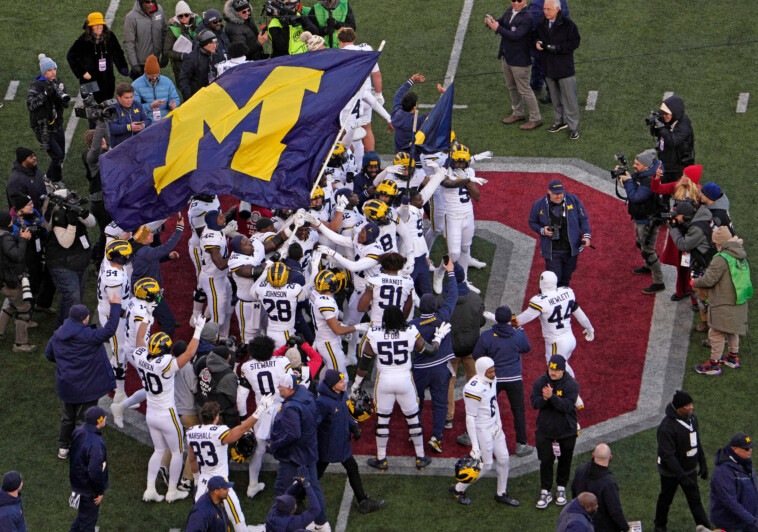Between the jingle and holly of this merry holiday season, an Ohio lawmaker is channeling his inner grinch.
In light of the melee that broke out at the end of the Ohio State-Michigan contest in late November, State Rep. Josh Williams (R-OH) proposed a bill that would make it a felony to plant a flag in the center of Ohio Stadium.
According to the brief Williams filed, House Bill 700 would “prohibit planting a flagpole and flag in the center of the Ohio Stadium football field on the day of a college football game.”
Dubbed by Williams as the “O.H.I.O. Sportsmanship Act,” the motion proposes that perpetrators be found guilty “of a felony of the fifth degree.”
The NCAA has taken its own measures to curb future unpleasantries in the wake of the Michigan-Ohio State brawl, levying $100,000 fines on both programs, but Williams’ fifth degree felony charges — which, in Ohio, can carry a six- to 12-month prison sentence, or up to five years of community control, i.e. probation — would be a much, much stronger deterrent.
Hell broke loose at the end of the rivalry game when Michigan edge rusher Derrick Moore, fresh off a major 13-10 upset win over then-No. 2 Ohio State, attempted to plant his school’s maize-and-blue flag on the Buckeye logo at midfield.
What came next was not the best of looks.
By the time the Michigan flag was ripped away from Moore by Ohio State linebacker Jack Sawyer, much damage had been done. Ohio police officers were only able to break up the insurrection by unleashing their pepper-spray amongst the unruly crowd.
The flag-fanning-fight drew the bulk of headlines on that fateful Saturday, though similar controversies emerged all across the country from North Carolina to Florida to Arizona.
At each site, the story was mainly the same.
Flag-planting, like court-storming, is a cousin of the dog-on-fire-hydrant method of claiming territory and asserting dominance, as much a part of the American collegiate sporting experience as warm keg-beers and tailgating.
Luckily for Michigan edge rushers and future Ohio State opponents, House Bill 700 stands little chance of passing this year.
Lawmakers are finishing up their two-year General Assembly next week and, according to the Port Clinton News Herald, bills that don’t pass during the 2024 calendar year would have to be reintroduced during the next cycle.
Christmas is saved. At least for now.







